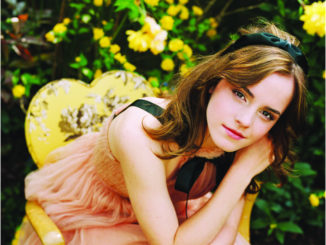
KYIV (TIP): At their home in the middle of Siberia, Russian pastor Roman Vinogradov and his wife Yekaterina are the new foster parents of five children from Moscow-occupied eastern Ukraine.
The Vinogradovs are experienced fosterers now raising 16 children, including four of their own, and say they just want to help those who are “very much in need”. But Ukraine and human rights groups have condemned the forced transfer of thousands of children into Russia or Moscow-controlled territory since the invasion last year.
Ukrainian President Volodymyr Zelensky last week referred to “kidnapping, forced adoption and re-education of Ukrainian children committed by Russia”, calling this “a war crime and a crime against humanity”.
Russia says it is simply taking in “refugee” children from Ukraine.
“I didn’t steal anyone. And they (the children) don’t think they were stolen,” Vinogradov, a 41-year-old Protestant minister, told AFP. The Vinogradovs, who live in the Siberian city of Novosibirsk, more than 3,000 kilometres (1,800 miles) east of Moscow, said local authorities asked them to take in Ukrainian children after they requested another child.
“They phoned from children’s services, saying: ‘Will you take children from Ukraine?” said Yekaterina Vinogradova, 38. “We said: ‘Yes, we’ll take them’.” “What difference does it make? Children are children everywhere. It doesn’t matter what nation.”
Four girls and a boy
The couple are now fostering five Ukrainian half-siblings — four girls and a boy aged three to 12, who arrived from Moscow six months ago. They already had seven foster children.
AFP saw the children cheerfully sledging together, clearing snow around the couple’s large house and helping prepare a meal.
The Vinogradovs say the Ukrainian children came from children’s homes in the city of Lugansk, which has been controlled by Russian-backed separatists since 2014. They showed foster papers issued by officials from Lugansk’s pro-Moscow administration.
The children do not remember their mother, who was stripped of her parental rights, Vinogradov said.
“The time will come of course when they ask questions. We’ll have a look (for her). Maybe we’ll organise a meeting,” said his wife. Vinogradov said the children were learning to live in a family and still needed reassurance that “this is their home”.
When the youngest went to nursery school “they were worried about whether we would collect them”, Vinogradov said. “They asked: ‘When will you come? Will you really come or not?'”
According to international law, no party to a conflict should evacuate children to a foreign country except temporarily for a compelling health or safety reason.
‘Russians hide our children’
In a report released on Monday, Human Rights Watch (HRW) called for a “concerted international effort” to return forcibly deported children and urged Russia to publish information on their whereabouts.
“Returning children who were illegally taken by Russian forces should be an international priority,” said Bill Van Esveld, HRW associate director for children’s rights. Ukraine’s presidential commissioner for children’s rights, Daria Gerasymchuk, said Russia was refusing to recognise that these children were “deportees”.
“Russians hide our children,” she told journalists last week.
Kyiv has so far brought back 308 children, Gerasymchuk said, with a “big team of government officials working to this end”.
Ukraine has “many pieces of evidence coming from different cities” and has identified 43 children’s camps in Russia. But children “are being moved around all the time”, she said.
“We have evidence of how much effort was taken by Russia to make it impossible to reunify families.” (AFP)





Be the first to comment